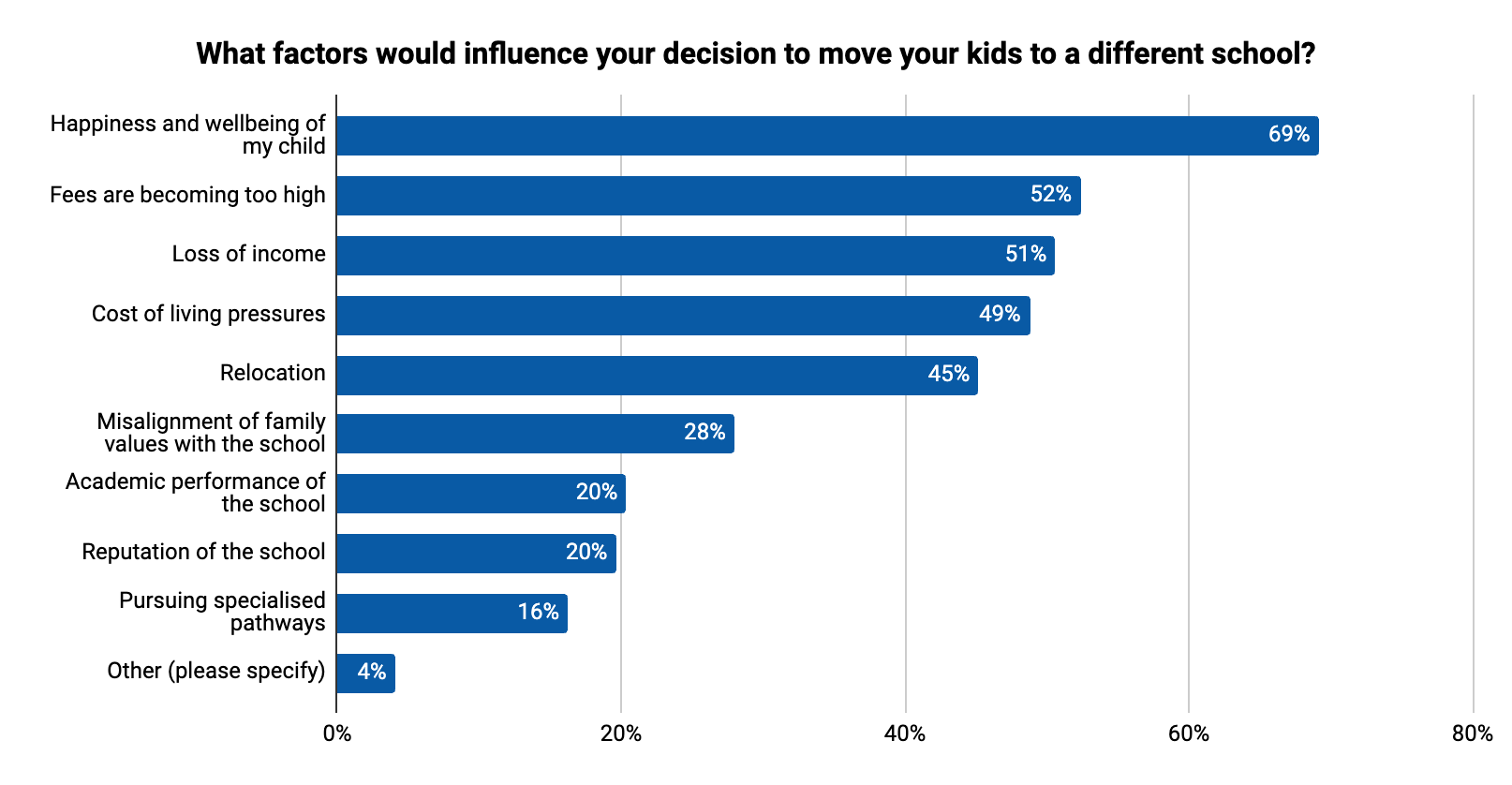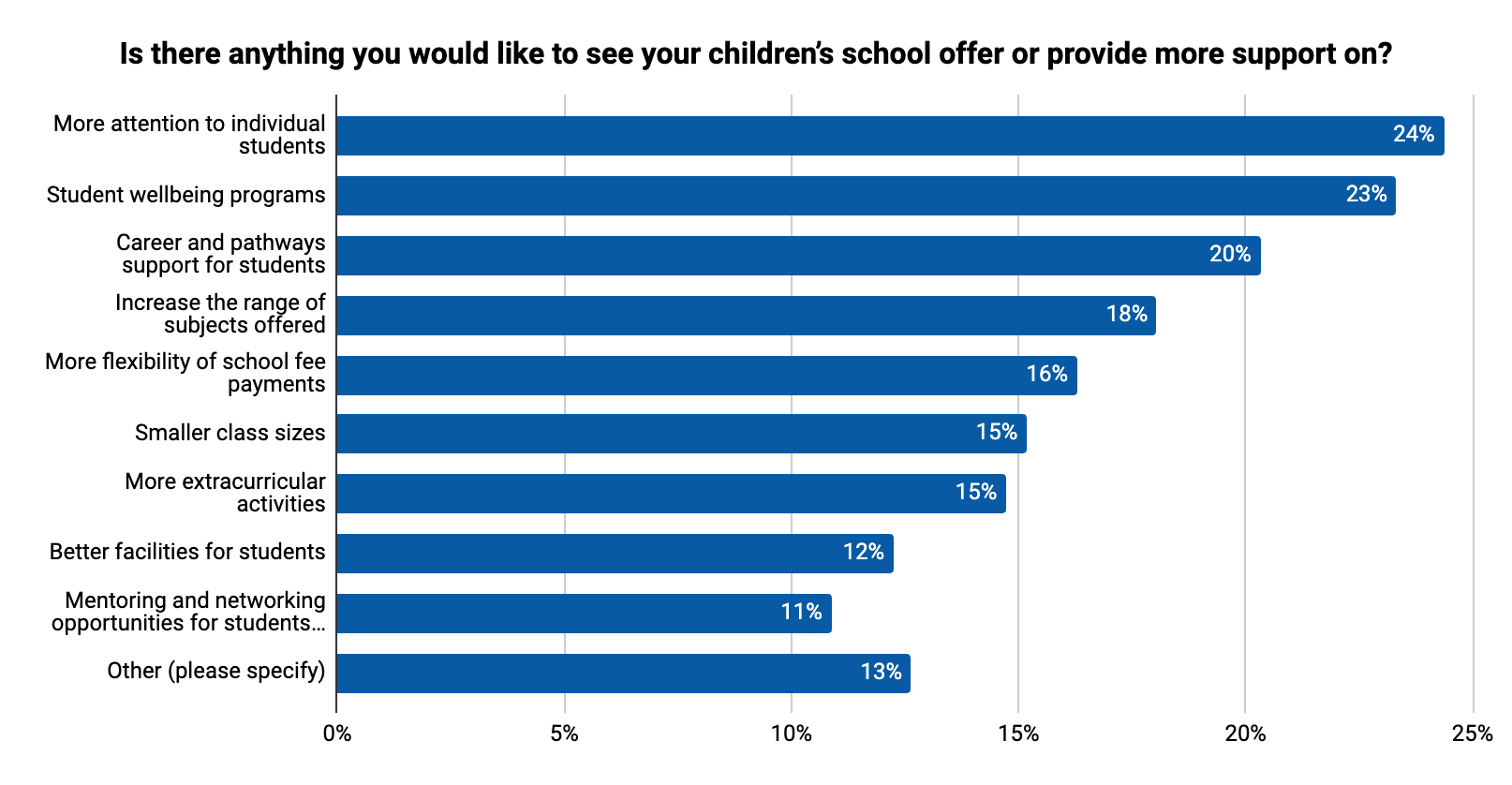
Student wellbeing tops the list of reasons why Australian private school parents would consider leaving, or choosing, a school, a new nationwide survey shows.
The data based on an Edstart survey of 1,545 parents in all states and territories, found that 69% indicated they would consider changing schools if they feel that their children are unhappy or not well looked after. This was compared to just 20% of parents who would move their kids to a different school due to its reputation for strong academic performance, and 16% to pursue specialised pathways.
When asked what they want their school to provide more support on, the top three factors again highlight the focus on their children’s wellbeing and fulfilment. These include more attention to individual students (24%) and wellbeing programs (23%), and career and pathways support (20%).
The findings are supported by a NAB study published in March which found half of students feel their school wellbeing programs do not help much. Students attending co-educational and girls’ schools reported the lowest scores for their schools’ wellbeing programs, while those at private Independent schools said they felt most supported.

Edstart CEO, Jack Stevens said schools could prioritise wellbeing support further especially for parents who are looking for more than just academic outcomes when it comes to their children’s education.
“One of the highest-impact initiatives we see is having a dedicated individual or team at the school tasked with responsibility for wellbeing, in many cases this is a restructure of existing roles to make more clear that student wellbeing is the key priority,” Stevens told The Educator.
“Secondly, schools should be continuously communicating to families about the wellbeing initiatives that are in place. Whilst many schools are well advanced in this space, families may not be aware if their particular child has not been directly involved in specific support programs.”

Besides student wellbeing, around half of parents indicated financial factors would influence their decision to switch schools for their children. These include fees becoming too high (52%), loss of income (51%), and cost of living pressures (49%) which all ranked amongst the top factors for leaving a school.
However, Stevens said there are ways for principals to balance the importance of affordable education with the investment in robust student wellbeing programs.
“It is natural for families to be considering financial factors in relation to school choice - this is not a new phenomenon and families are well aware that quality education may require a significant financial investment,” he said.
“One of the most effective things a school can do is allow parents to pay fees in a way that is matched to each family’s household budget and cash flow dynamics.”
Stevens said schools often cannot provide this flexibility themselves, since they need cash flow to pay teachers each fortnight, but Edstart has solved this problem.
“Schools receive all payments upfront whilst each family pays on a different tailored cycle to match their particular household budget,” he said.
“We’ve seen an increase in families taking advantage of the flexibility Edstart provides with their school fee payments, with 13% more families opting to pay by instalments instead of upfront payments in 2023 so far.”
The parent survey is part of the data input into the upcoming Edstart School Insights Report which is designed to help inform school decision making across finance, operations and strategy.


